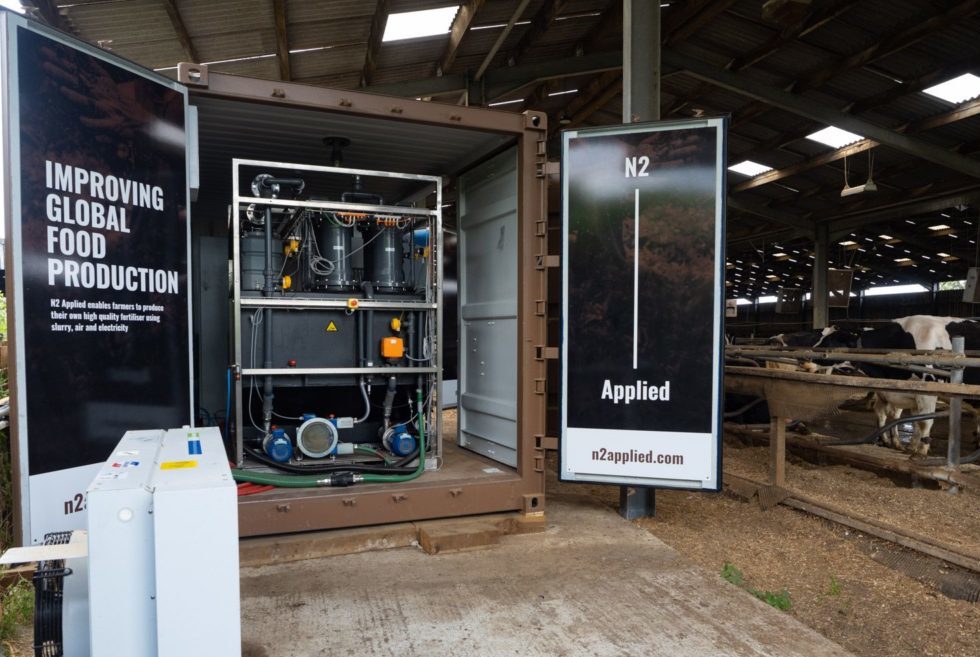Oslo, Norway-headquartered N2 Applied has raised €15 million ($17.3 million) in investment grants from the EU for its tech that converts animal manure into sustainable fertilizer and traps greenhouse gas emissions in the process.
The grant is funded by the EU’s European Innovation Council (EIC), which has a €10.1 billion budget to invest in startups and small and medium-sized companies developing tech-based solutions for different industries. In the food and ag world, EIC has already invested in mycoprotein startup Mycorena and indoor farming company Infarm.
As N2 CEO Carl Hansson explains to AFN, farmers feed slurry into the company’s machine, which is about the size of a tractor. High-voltage electricity is then applied to convert the plasma, drawing in nitrogen from the air and using it to enhance the slurry. The process “locks in” both methane and ammonia to the liquid waste material, which reduces greenhouse gas emissions and makes the end product, the fertilizer, more sustainable overall, Hansson claims.
It also allows farmers to gain higher crop yields without necessarily needing nitrogen chemical fertilizers, he adds.
N2 Applied has conducted multiple trials and pilot projects across nine countries so far. These trials, the company says, have show elimination of emissions, improved yields, and the ability to suppress ammonia leakage and therefore odors.
Earlier this month, N2 announced the results of a EU-funded trial that was conducted at Danish dairy giant Arla’s “innovation farm” in the UK. Environmental research firm ADAS tested the plasma-treated fertilizer converted from cow slurry for ammonia emissions and nitrogen use efficiency. “When applied to winter wheat and monitored over the course of a week the plasma-treated material recorded average ammonia emissions reduction of 90%, compared to untreated slurry,” N2 said in a recent blog post.
Hansson says the N2 unit is currently garnering a lot of interest in Scandinavia and the US as well as the UK. The company is hoping to do another round of funding next year and is looking for commercial partners.
“We can feel this discussion is picking up day by day,” Hansson says of the need for more climate-friendly agricultural solutions. “The agrifood companies are investing in new innovations. The demand and need for this kind of circular solution that allows us to maintain food production will increase a lot in the years to come.”
N2 Applied recently raised 83 million kroner ($9.8 million) for the international commercial rollout of the technology. Hansson himself led the round, which also included participation from Blue River Invest, Holta Invest, Joh. Johannson/NorgesGruppen, and Ramussengruppen.





